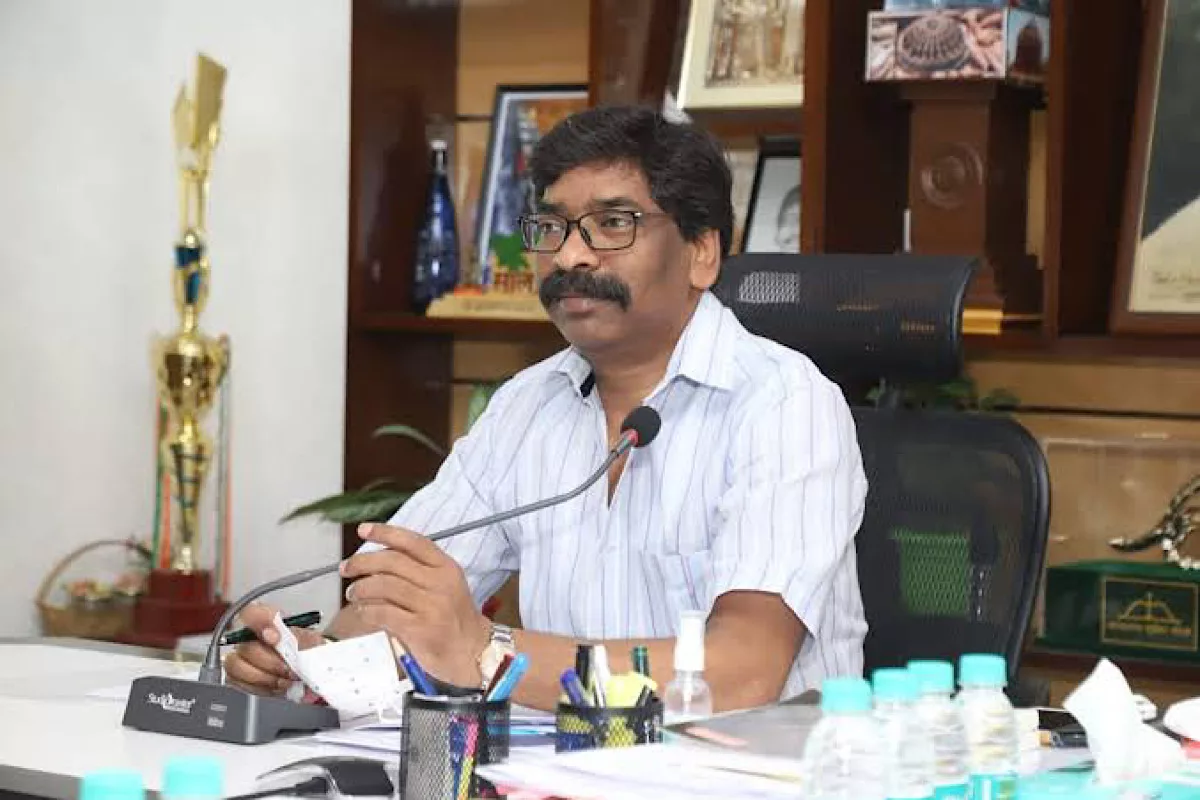The launch of Jharkhand Mukhyamantri Maiyan Samman Yojana (JMMSY) marks a transformative moment in our state’s journey toward women’s empowerment and rural economic revitalisation. Now in its fifth month, this universal basic income initiative will provide 2,500 monthly to 56 lakh women aged 18-50, representing a bold step in continuing the legacy of Dishom Guru Shibu Soren Ji’s historic struggle against exploitative moneylending practices. The significance of this scheme must be understood against the backdrop of Jharkhand’s unique socio-economic landscape.
For decades, our state has witnessed the devastating impact of predatory moneylenders on rural families, with women bearing the disproportionate burden of debt-induced poverty. The movement led by Dishom Guru Shibu Soren in the 1970s highlighted how informal debt trapped generations in cycles of poverty, often leading to bonded labor and loss of ancestral lands. Today, through Maiyan Samman, we’re writing a new chapter in this struggle for financial liberation while specifically targeting women’s economic independence. The scheme’s universal nature stands as its cornerstone strength. By covering all women in the specified age group, regardless of economic status, we eliminate the exclusion errors that have historically plagued targeted welfare programs.
Advertisement
This universality ensures dignity in assistance and removes the stigma often associated with government aid. The direct transfer of 2,500 monthly, Rs 30,000 annually/women in a household represents transformative boost to household income, particularly in rural areas where women’s financial autonomy has traditionally been severely limited. Extensive research from global economic studies demonstrates that womendirected cash transfers consistently lead to improved outcomes in family health, education, and nutrition. Women typically invest a higher proportion of their income in family welfare compared to men. This multiplier effect transforms Maiyan Samman from a simple welfare scheme into a strategic investment in Jharkhand’s future generations.
The financial inclusion aspect of this initiative deserves special attention. By necessitating bank accounts of women for transfers, we’re bringing millions of women into the formal banking system for the first time. This inclusion has cascading benefits – from building credit histories to enabling access to formal credit at reasonable rates. The impact extends beyond individual beneficiaries; it strengthens the entire financial ecosystem of rural Jharkhand while systematically weakening the grip of exploitative moneylenders. The timing of Maiyan Samman is particularly crucial in our post-pandemic context. COVID-19’s economic impact has been notably gendered, with women bearing a disproportionate burden of job losses and reduced income opportunities.
Beyond providing a crucial safety net, the scheme stimulates local economies through increased consumer spending. When women have purchasing power, local markets thrive, creating a virtuous cycle of economic growth. Critics questioning the fiscal implications of such a universal program must recognise this as an investment rather than mere expenditure. The scheme’s cost is offset by multiple factors: reduced spending on crisis intervention, decreased healthcare costs due to better preventive care, and improved educational outcomes reducing future social welfare needs. Furthermore, the economic activity generated through increased consumption will boost tax revenues and create a more vibrant local economy. Our approach represents a fundamental shift in welfare philosophy. Rather than the paternalistic approach of deciding what beneficiaries need, we trust women to make the best decisions for their families.
This respect for individual agency is fundamental to real empowerment. The regular income stream enables women to plan, save, and invest in ways that best suit their unique circumstances, fostering financial literacy and economic independence. The scheme’s name, ‘Maiyan Samman’ recognises women’s crucial role in our tribal heritage while providing concrete means for economic agency. In other parts our country as well as in Jharkhand, women spend countless hours on domestic work, childcare, and agricultural activities – contributions that have historically gone unrecognised and uncompensated. This monthly payment acknowledges their vital role in the care economy and provides some measure of economic recognition for their work.
The digital infrastructure supporting Maiyan Samman deserves mention. By leveraging technology for direct transfers, we ensure transparency and efficiency while reducing leakages. This digital approach promotes financial and technological literacy among women, preparing them for an increasingly digital economy. The combination of financial inclusion and digital empowerment positions our women to participate more effectively in the modern economy. Environmental implications are significant research shows that when women have greater economic agency, they often make more sustainable choices in resource management. In Jharkhand’s context, this could mean better forest conservation, more sustainable agricultural practices, and improved natural resource management areas where women traditionally play crucial roles.
The labor market implications are equally important. With a basic income guarantee, women gain stronger bargaining power in employment negotiations. They can refuse exploitative work conditions, which is often the case and invest time in looking for better work opportunities. This could gradually improve working conditions and wages across the informal sector, where many of our women are employed. As we implement this groundbreaking initiative, we remain mindful of the challenges ahead.
Ensuring smooth delivery, maintaining transparency, replenishing state exchequer and measuring impact require constant vigilance. We’re committed to regular evaluation and adjustment based on feedback and outcomes, ensuring the scheme evolves to meet its objectives effectively. Maiyan Samman represents more than just a government scheme – it’s a statement of our values and vision for Jharkhand’s future. By empowering women economically, we’re not just fulfilling Shibu Soren’s dream of freedom from exploitative moneylenders; we’re laying the foundation for a more equitable, prosperous, and just society.
This initiative sets a precedent for other states and could potentially shape the national discourse on universal basic income and women’s economic empowerment. The women of Jharkhand deserve nothing less than this bold step toward true economic freedom and social justice. Jai Jharkhand, JaiHind The writer is the Chief Minister of Jharkhand











